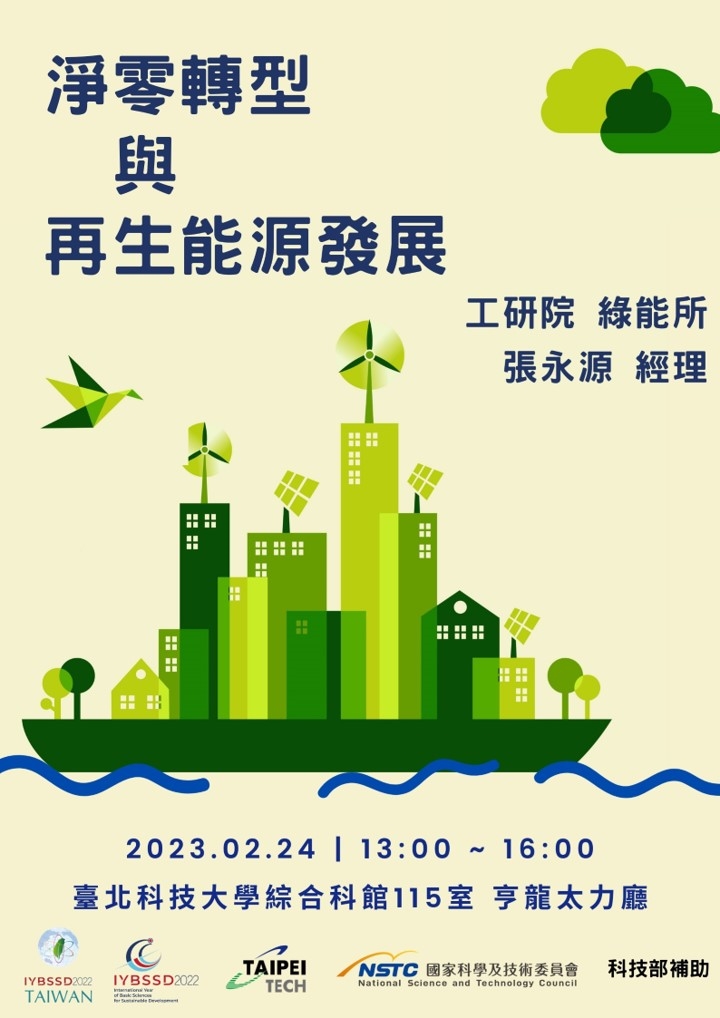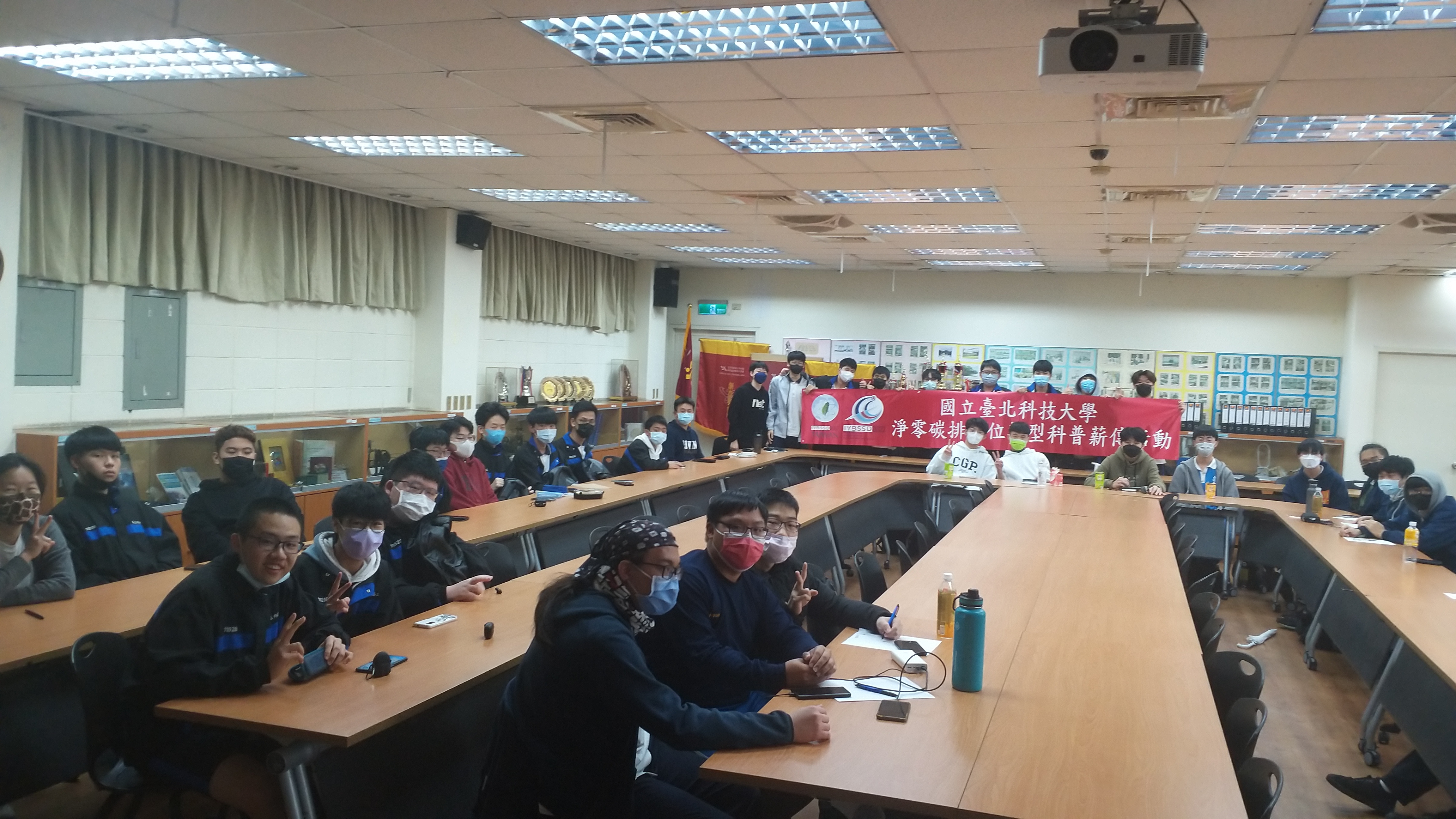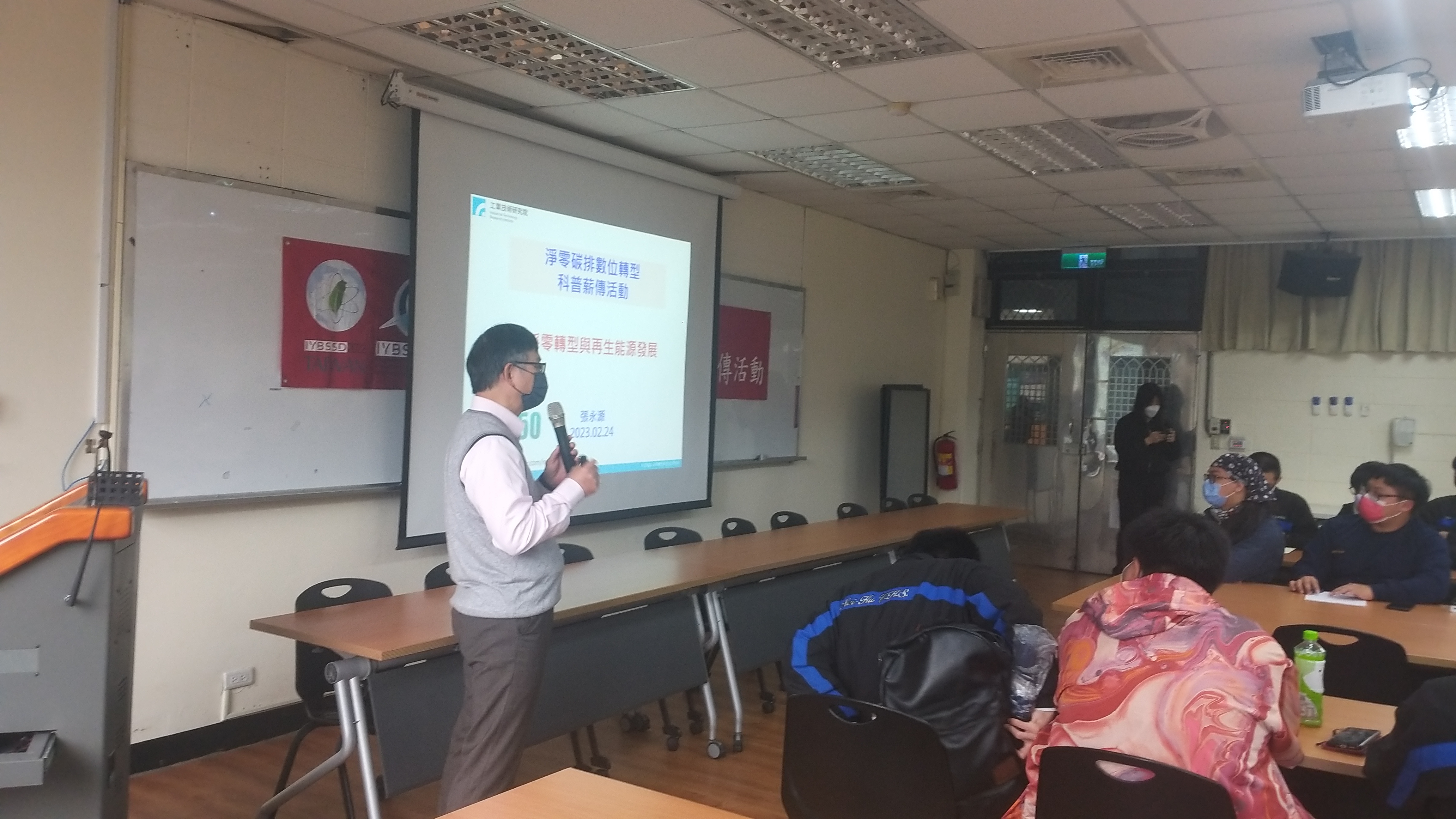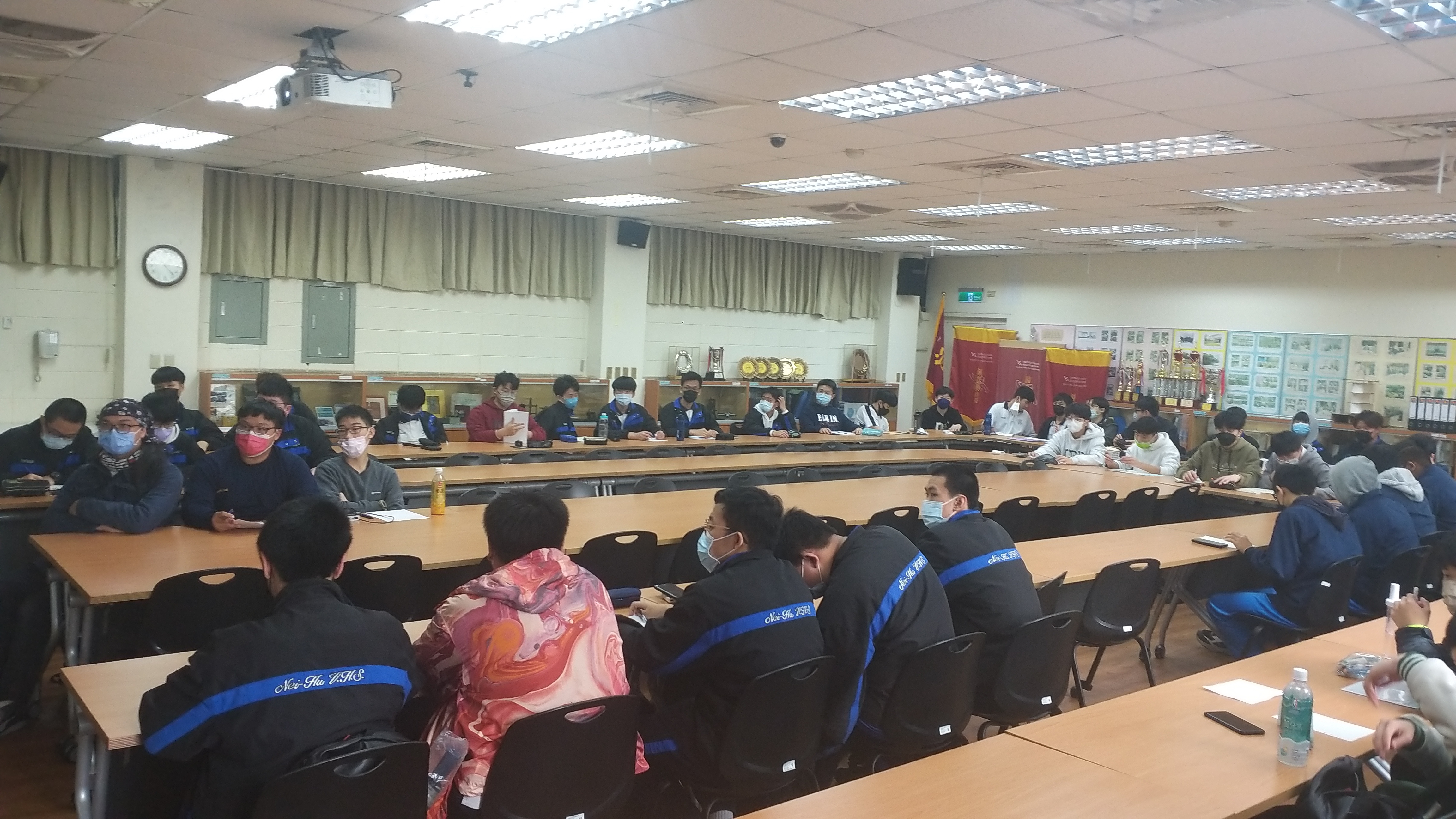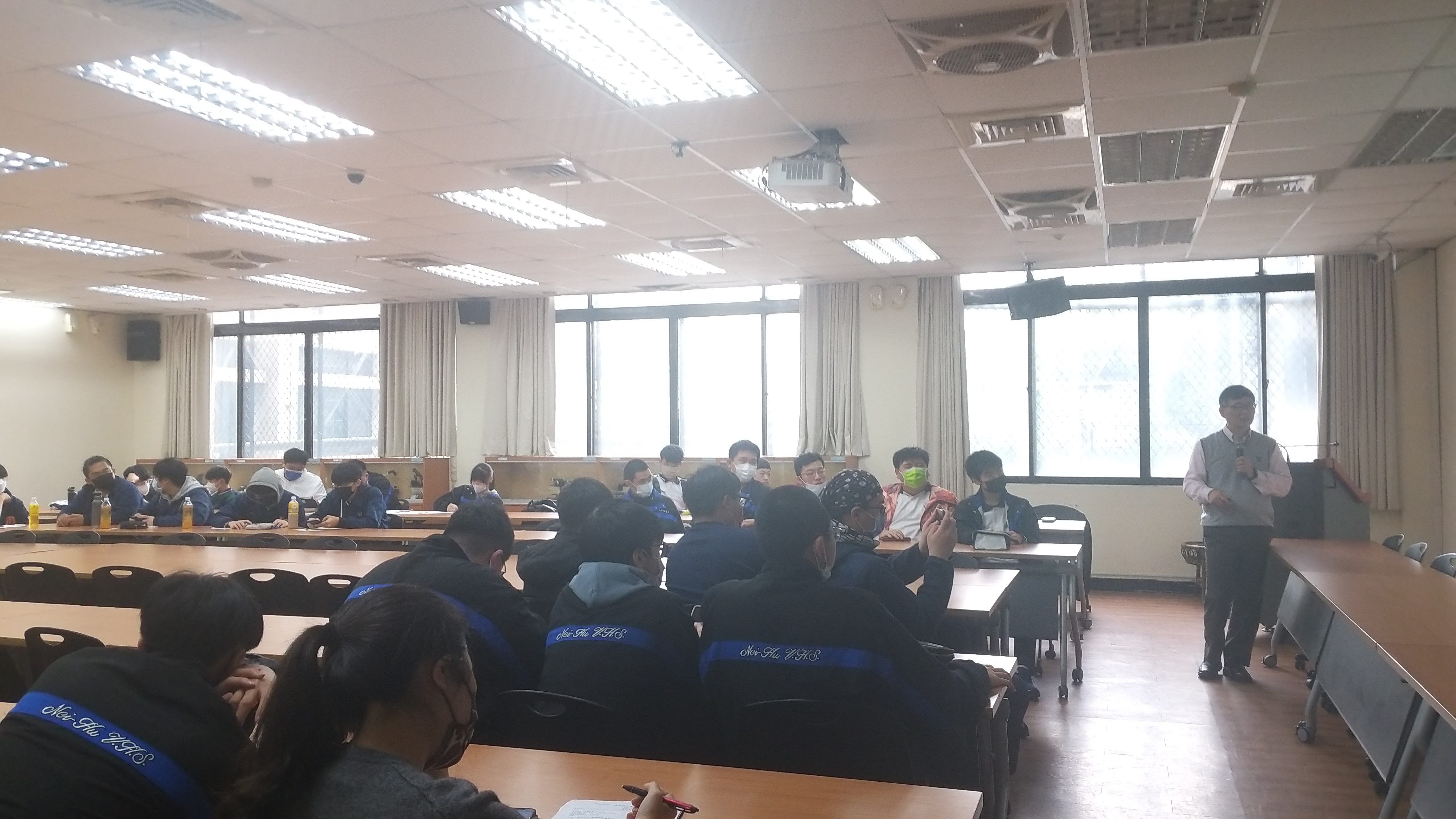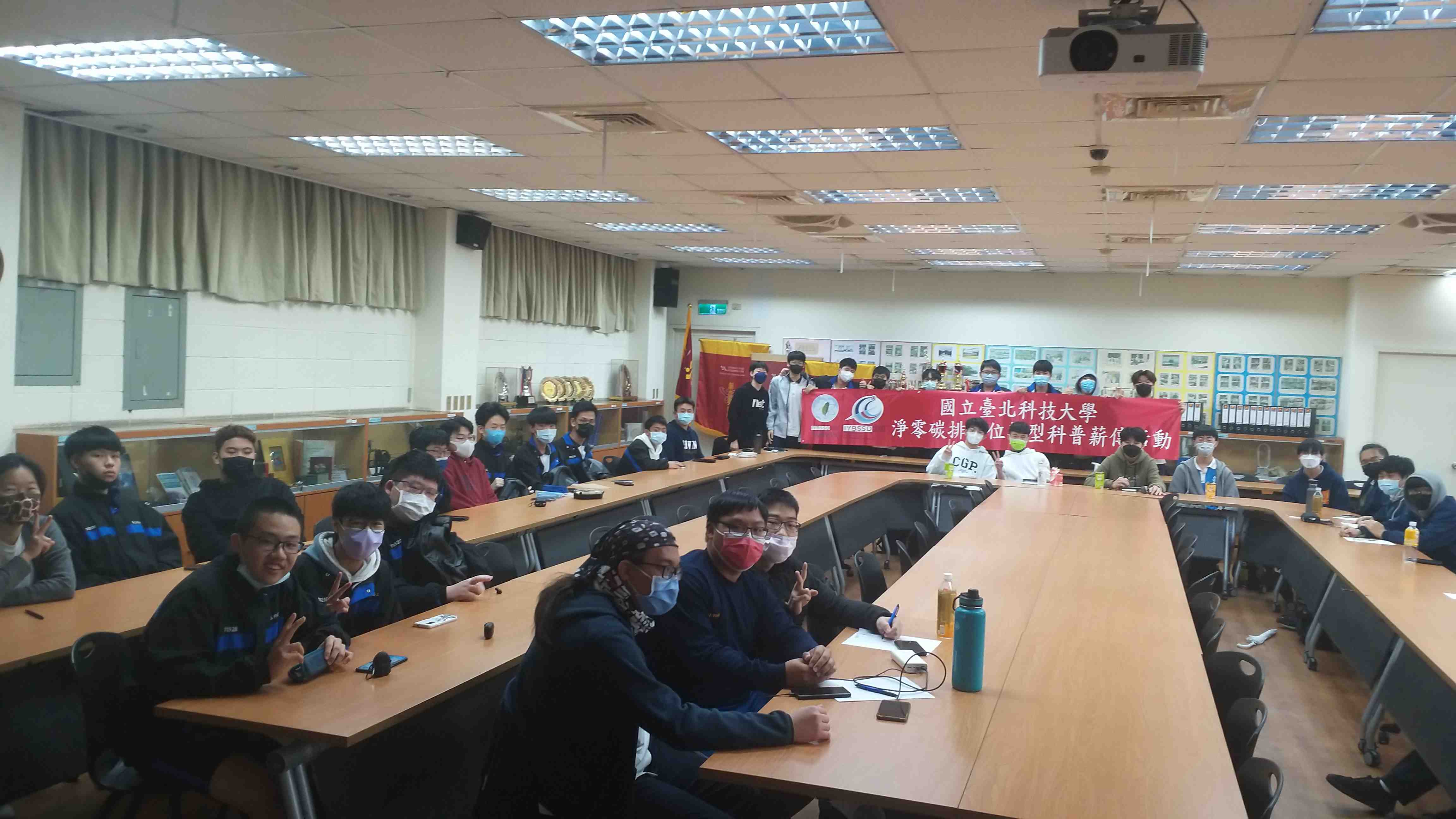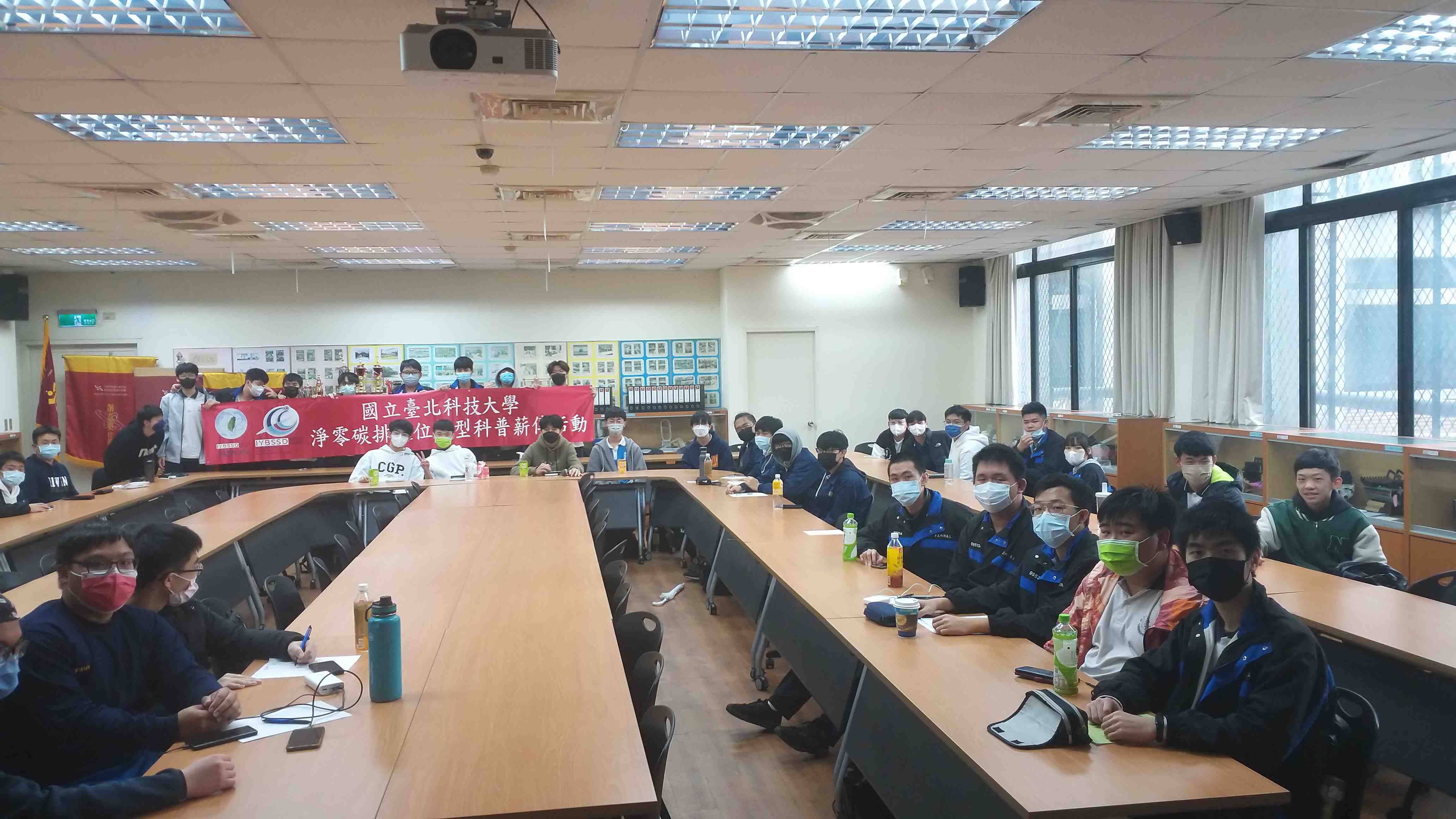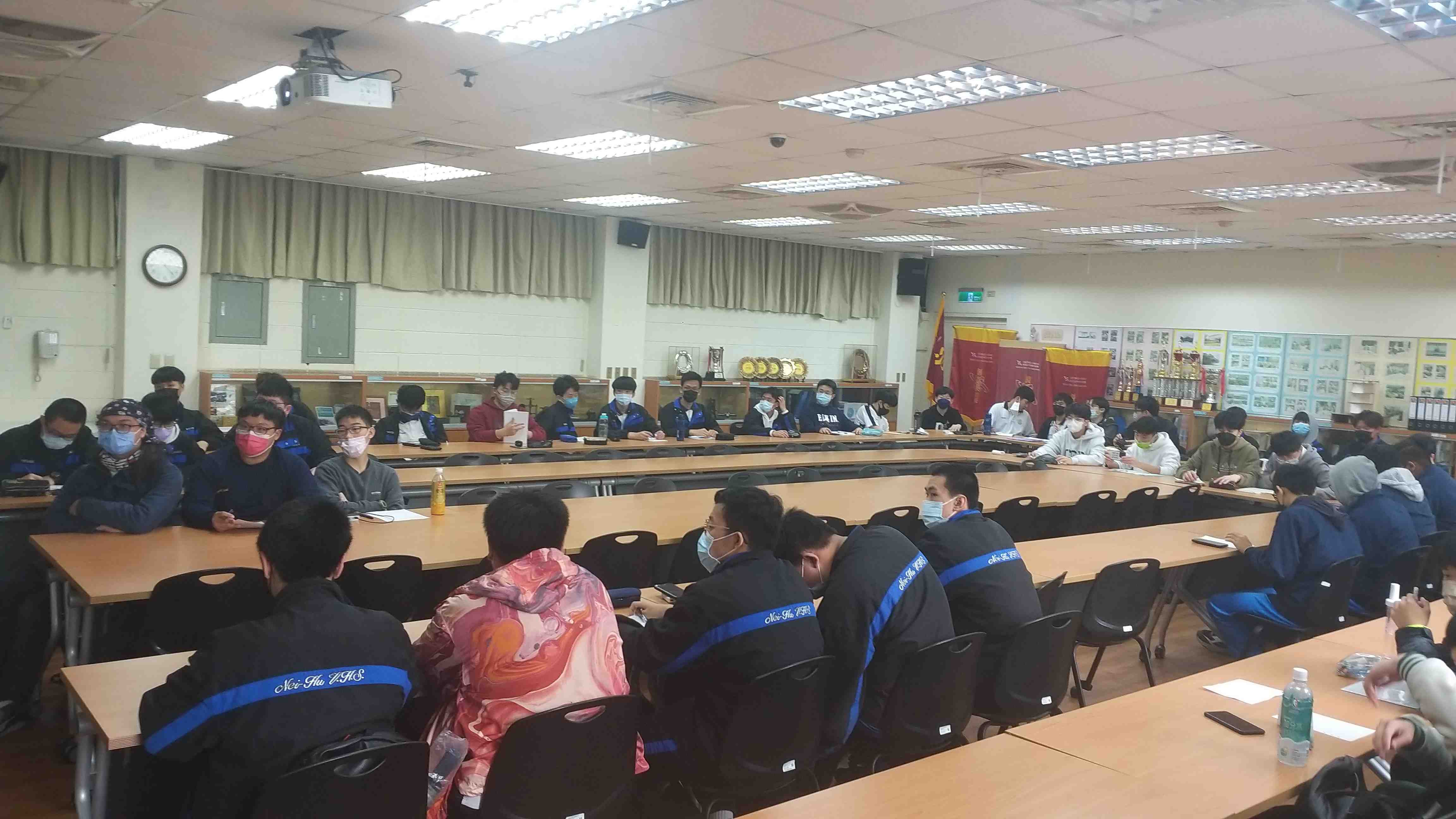Net Zero Transition and Development of Renewable Energy
Net Zero Transition and Development of Renewable Energy/Taiwan is currently facing a shortage of electricity resources and cannot delay the pace of energy transformation. Although the 2050 Energy Transition Policy was announced in March 2022, the development of renewable energy is still slow. In view of this social situation, we have invited Manager Zhang Yongyuan from the Green Energy Institute of the Industrial Technology Research Institute to explain the current status of renewable energy development in Taiwan for the students. Starting from the commonly used electricity resources, the sharing of viewpoints is expected to bring some insights to the students in this lecture.
Activity Goals aligned with SDGs Projects




Goal
Science Cultivation
Type of event
Seminar/Forum/Lecture
Workshop/Symposium
Organizer
The College of Mechanical & Electrical Engineering (CMEE) at Taipei Tech
Event Audience
Preshool to high school students
Contact
Telephone Number
987109879
t108300112@ntut.org.tw
Result
This activity invited Nangang Senior Industry Frozen Air Conditioning Section, Inner Lake Senior Works Frozen Air Conditioning Section, Information Department, Electrical Department, Electronic Department, and a teacher from Jingmei Middle School to participate in the lecture science popularization activities. The reason for the growth of interest and knowledge came. The activity first introduced what the net zero carbon row is, and then introduced Taiwan's energy transformation target and the current status of power consumption. The lecturer mentioned that in addition to being unable to power the power generation, the lecturer also needs to be replaced by land, especially for local power, especially It is solar energy, and the land area of ??solar plates can be paved in Taiwan is basically spread on. After that, it is agricultural land or forestry land. The lecturer shared the carbon reduction per hectare of the land and solar panels in the course. Or the carbon absorption results, the carbon absorption benefits of the woods are far lower than the carbon reduction benefits available for solar panels, but they still cannot cut all the forest land in this way. Wind power is basically built, and the remaining land that can be used for wind power in land is mostly protected wetland terrain. Next, you can only try to develop offshore wind power to achieve the installation capacity target of 2025. In Taiwan, it is a process of choice and tolerance and compromise. Please look forward to the future renewable energy industry can develop more smoothly.
Number of Participants46人
Featured events
Contact Us
- Tel: 02-7749-6818
- Email: iybssdtw@gmail.com
Adviser

自然科學及永續研究發展處
Organizer
國立臺灣師範大學科學教育研究所、自然科學及永續研究推展中心、國立成功大學材料科學及工程學系、台灣物理學會、中國化學會
Co-organizer
中央研究院永續科學中心、中原大學物理學系、中華民國數學會、行政院原子能委員會、財團法人國家實驗研究院國家高速網路與計算中心、財團法人國家衛生研究院、高雄市政府教育局、國立中央大學科學教育中心、國立中正大學科學教育中心、國立成功大學科學教育中心、國立自然科學博物館、國立東華大學科學教育中心、國立科學工藝博物館、國立海洋生物博物館、國立海洋科技博物館、國立高雄大學科學教育中心、國立高雄師範大學、國立清華大學跨領域科學教育中心、國立彰化師範大學、國立臺灣大學科學教育發展中心、國立臺灣科學教育館、國家衛生研究院、淡江大學科學教育中心、逢甲大學綠能科技暨生技產業發展研究中心、臺北市政府教育局、臺灣永續棧、臺灣海洋聯盟、臺灣港務股份有限公司
